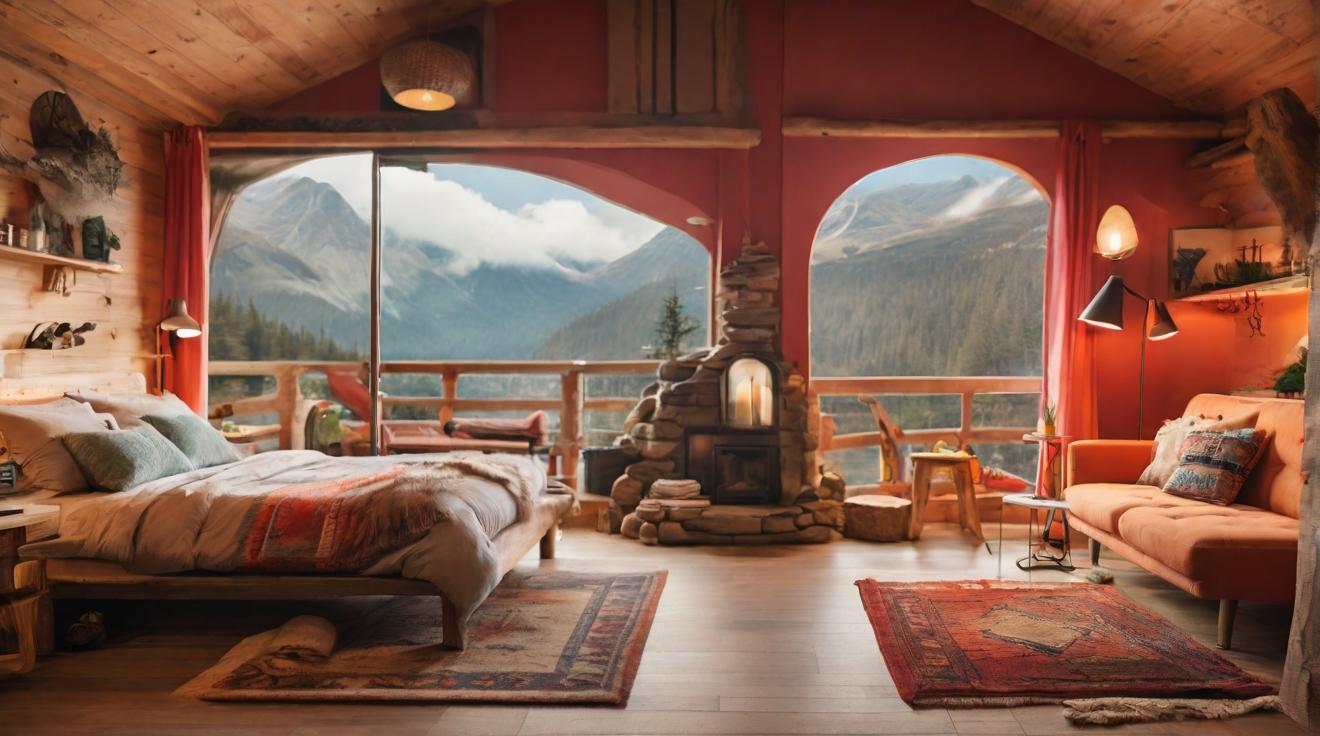Rising Popularity: Airbnb and Adventure Lodges Compete for Adrenaline-Fueled Accommodation
In recent years, there has been a surge in demand for adrenaline-fueled accommodation options, with travelers seeking unique experiences that go beyond traditional hotels. As a result, both Airbnb and adventure lodges have emerged as major competitors in this niche market. While Airbnb offers a platform for individuals to rent out their homes or spare rooms, adventure lodges cater specifically to adventure enthusiasts, offering specialized activities and accommodations. This article will analyze the strengths, weaknesses, opportunities, and threats (SWOT) of both Airbnb and adventure lodges, and explore the trends and developments in this adrenaline-fueled accommodation segment.
Strengths and Weaknesses: A SWOT Analysis of Airbnb and Adventure Lodges
Airbnb:
Strengths:
- Wide range of accommodation options: Airbnb offers a vast selection of unique and diverse accommodations, ranging from treehouses and yurts to luxury villas and apartments. This variety appeals to travelers seeking unconventional experiences.
- Competitive pricing: In many cases, Airbnb offers more affordable options compared to traditional hotels. This attracts budget-conscious travelers who are willing to sacrifice certain amenities for a lower price.
- Flexibility and convenience: Airbnb allows travelers to book accommodations at their convenience, with flexible check-in and check-out times. This flexibility is particularly appealing to adventure travelers who often have unpredictable itineraries.
Weaknesses:
- Lack of consistency: As Airbnb listings are managed by individual hosts, the quality and consistency of accommodations can vary greatly. Some travelers may have negative experiences due to misinformation or miscommunication with hosts.
- Limited on-site services: Unlike adventure lodges, Airbnb does not typically offer on-site services such as guided tours or equipment rentals. This may be a drawback for travelers seeking a seamless and all-inclusive adventure experience.
- Safety concerns: In the past, there have been instances of safety issues and scams on Airbnb. While the platform has implemented measures to address these concerns, there is still a level of risk associated with booking through Airbnb.
Adventure Lodges:
Strengths:
- Expertise and experience: Adventure lodges specialize in providing adrenaline-fueled experiences and activities. They often have knowledgeable staff and guides who can recommend and organize adventure outings, ensuring a high-quality and safe experience for guests.
- On-site services and amenities: Adventure lodges typically offer a range of on-site services such as equipment rentals, guided tours, and dining options. This convenience eliminates the need for guests to make separate arrangements for their adventure activities.
- Community and camaraderie: Adventure lodges foster a sense of community among guests, with shared spaces and common areas where travelers can connect and exchange stories. This social aspect appeals to adventure enthusiasts seeking like-minded individuals to share their experiences with.
Weaknesses:
- Limited accommodation options: Unlike Airbnb, adventure lodges often have a limited number of rooms or cabins available. This can make it challenging to secure reservations, particularly during peak travel seasons.
- Higher cost: Adventure lodges generally come with a higher price tag compared to Airbnb accommodations. This may deter budget-conscious travelers who prioritize cost savings over specialized adventure experiences.
- Lack of personalization: While adventure lodges offer a unique adventure-focused experience, they may not provide the same level of personalization as Airbnb. Each adventure lodge tends to offer a set range of activities and experiences, limiting the customization options for guests.
Personalization and Authenticity: How Airbnb Shakes Up the Adventure Lodging Industry
One of the major advantages of Airbnb in the adrenaline-fueled accommodation market is its ability to provide personalized and authentic experiences. Airbnb allows travelers to stay in unique and often unconventional accommodations, giving them a taste of local culture and lifestyle. This personalization extends beyond the physical space, as hosts often provide insider tips and recommendations for adventure activities in the area. By staying in an Airbnb, travelers have the opportunity to immerse themselves in the local community and gain a deeper understanding of the destination.
In contrast, adventure lodges may offer a more standardized experience. While they excel in providing specialized adventure activities, their accommodations may lack the personalized touch that Airbnb hosts can provide. This lack of personalization can be a drawback for travelers seeking a more authentic and immersive adventure experience.
Experience and Expertise: The Advantages of Adventure Lodges over Airbnb
While Airbnb offers a wide range of accommodations, adventure lodges have the advantage of expertise and experience in the adventure travel industry. Adventure lodges are often located in prime adventure destinations and have extensive knowledge of the local activities and attractions. They can offer tailored adventure packages, ensuring that guests have access to the best experiences in the area. Adventure lodges also provide expert guides and instructors, ensuring the safety and enjoyment of guests during their adventures.
In contrast, Airbnb hosts may not have the same level of specialized knowledge or experience in adventure activities. While they can provide recommendations, they may not have the expertise to organize and guide guests in their adventure pursuits. This expertise gap can be a disadvantage for travelers who are looking for a seamless and well-organized adventure experience.
The Future of Accommodation: Unlocking Opportunities in the Airbnb vs. Adventure Lodges Competition
The competition between Airbnb and adventure lodges in the adrenaline-fueled accommodation market is expected to intensify in the coming years. Both sectors have unique strengths and weaknesses, and there are opportunities for growth and collaboration.
To succeed in this competitive landscape, Airbnb could consider partnering with adventure lodges to offer specialized adventure packages and experiences. By leveraging the expertise and local knowledge of adventure lodges, Airbnb could enhance its offerings and cater to the growing demand for personalized and authentic adventure experiences.
On the other hand, adventure lodges could explore partnering with Airbnb to tap into its vast network of travelers. By listing their accommodations on Airbnb, adventure lodges can reach a wider audience and attract more guests, thereby increasing their occupancy rates and revenue.
In conclusion, the adrenaline-fueled accommodation market is witnessing a clash between Airbnb and adventure lodges. While Airbnb offers personalization and authenticity, adventure lodges provide expertise and all-inclusive services. The future of this market will depend on how these competitors adapt and innovate to meet the evolving needs and preferences of adventure travelers.













